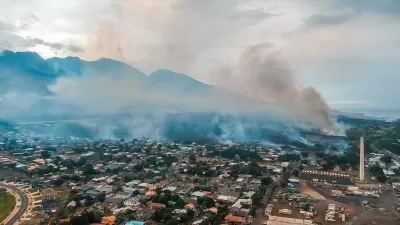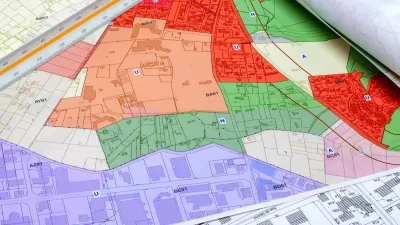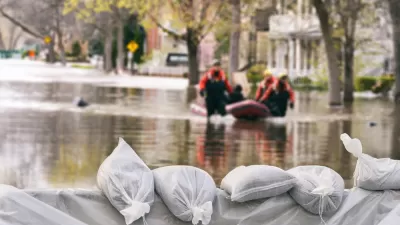Whether climate change 'caused' the California fires is a red herring, argues disaster resiliency expert Dave Hampton, in this first part in a series on lessons from the California fires about climate change.

Media reporting on the relationship between the recent devastating wild fires in California and climate change have demonstrated the confusion between attribution and contribution. While disasters like fires can never be directly attributed to climate change, Dave Hampton, a natural disaster resiliency specialist, argues there is little doubt climate change is:
. . . creating the preconditions for them to occur or to be more intense or prolonged – such as the higher winds and an overall drier season that have driven the Skirball and Thomas fires, threatening nearly 200,000 acres in California . . . [The] point is, rather, not to get too hung up on causation for particular events, but rather to acknowledge the changing climate as a driver and contributor to making natural events events such as wildfires, droughts, and flooding more severe.
Accordingly, planning for the 'wildland-urban interface' will require heightened and more proactive measures than in the past. For more, see source article.
FULL STORY: Lessons from the California Fires: Climate Change Impacts and Proactive Planning (part 1)

Manufactured Crisis: Losing the Nation’s Largest Source of Unsubsidized Affordable Housing
Manufactured housing communities have long been an affordable housing option for millions of people living in the U.S., but that affordability is disappearing rapidly. How did we get here?

Americans May Be Stuck — But Why?
Americans are moving a lot less than they once did, and that is a problem. While Yoni Applebaum, in his highly-publicized article Stuck, gets the reasons badly wrong, it's still important to ask: why are we moving so much less than before?

Research Shows More Roads = More Driving
A national study shows, once again, that increasing road supply induces additional vehicle travel, particularly over the long run.

Judge Halts Enforcement of Anti-Homeless Laws in Grants Pass
The Oregon city will be barred from enforcing two ordinances that prosecute unhoused residents until it increases capacity and accessibility at designated camping sites.

Advancing Sustainability in Los Angeles County Schools
The Los Angeles County Office of Education’s Green Schools Symposium brings together educators, students, and experts to advance sustainability in schools through innovative design, climate resilience strategies, and collaborative learning.

Using Old Oil and Gas Wells for Green Energy Storage
Penn State researchers have found that repurposing abandoned oil and gas wells for geothermal-assisted compressed-air energy storage can boost efficiency, reduce environmental risks, and support clean energy and job transitions.
Urban Design for Planners 1: Software Tools
This six-course series explores essential urban design concepts using open source software and equips planners with the tools they need to participate fully in the urban design process.
Planning for Universal Design
Learn the tools for implementing Universal Design in planning regulations.
City of Moreno Valley
Institute for Housing and Urban Development Studies (IHS)
City of Grandview
Harvard GSD Executive Education
NYU Wagner Graduate School of Public Service
City of Cambridge, Maryland
Newport County Development Council: Connect Greater Newport





























